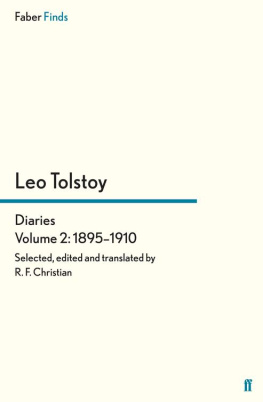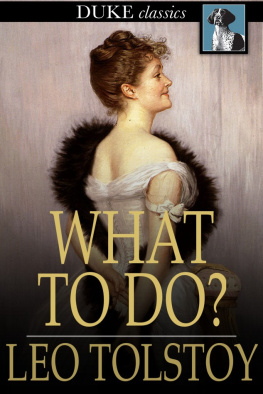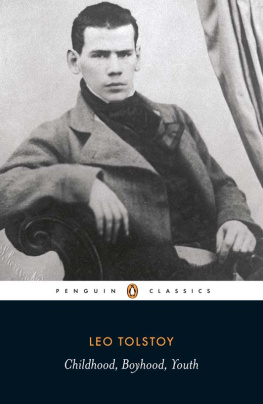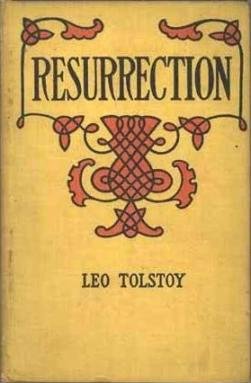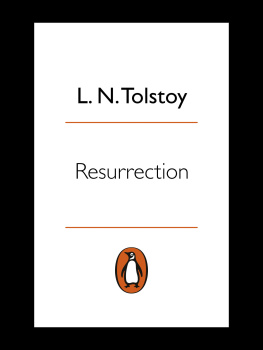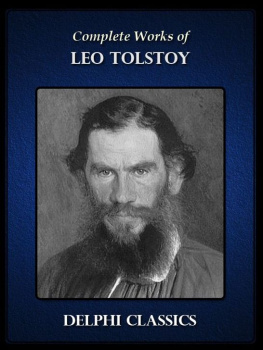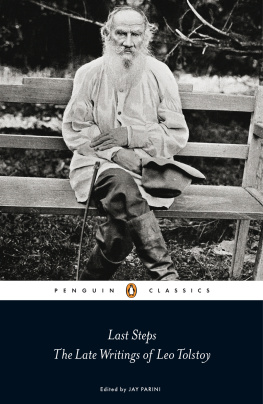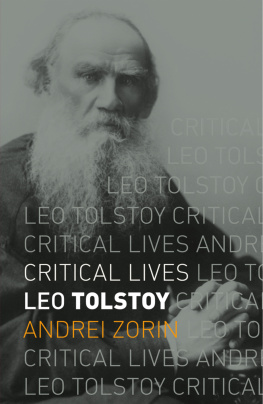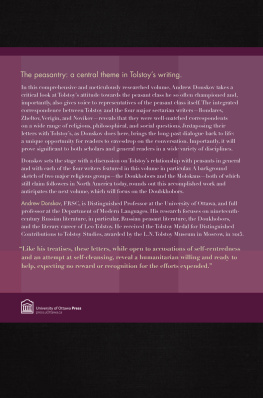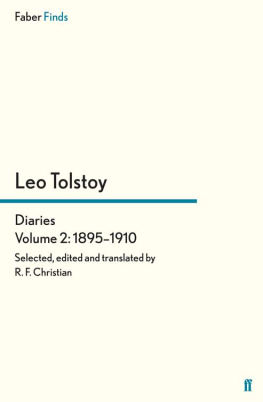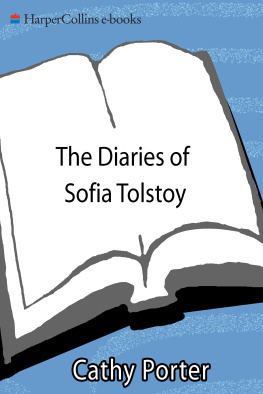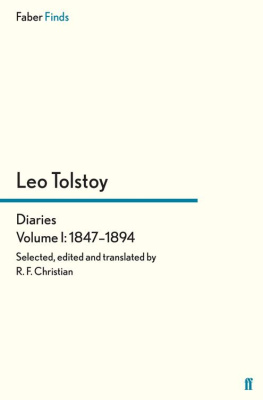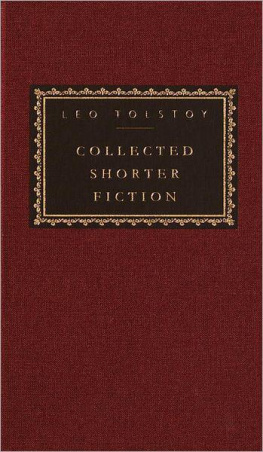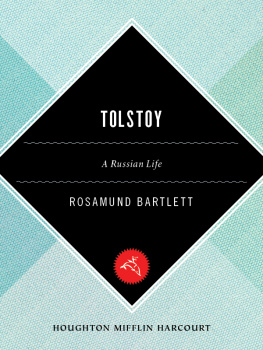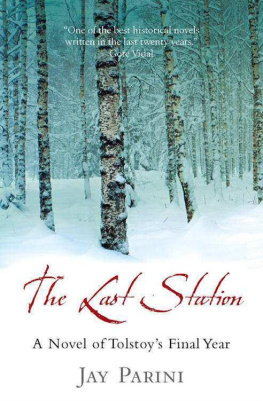Tolstoys literary activities famously began in the venereal diseases clinic of Kazan University in the spring of 1847, when he was eighteen years old. During the month that he spent in the clinic, in almost complete isolation, he started keeping a diary. To begin with, Tolstoy regarded his diary as a record of his hopelessly optimistic self-improvement programme. Later it became an outlet for his creative and philosophical reflections, and as such comprises an indispensable companion to his published writings, both fictional and otherwise.
Keeping a diary, for Tolstoy, was not the deeply private affair it is for most people, even if it started out that way. In the all-too-brief week between Tolstoys proposal and marriage to Sonya Behrs in September 1862, he felt it incumbent upon him to give his young fiance his diaries to read. The vivid realism which is the hallmark of Tolstoys fiction is matched by the frankness of his diary entries, but he did not feel he should conceal anything in his past from his future bride.
As an innocent and inexperienced eighteen-year-old girl, who had seen little of life, Sonya was deeply shocked and upset by what she later termed his excessive conscientiousness, particularly when it came to reading about his sexual history with peasant girls. Nevertheless, she went ahead with the marriage and before long she and her husband were regularly and sometimes frenetically reading each others diaries. It was a habit kept up until the very last months of Tolstoys long life in the summer and autumn of 1910, when his deteriorating relations with Sonya led him to try for the first time to keep a diary for himself alone.
Tolstoy did not keep a diary regularly throughout his life, for sometimes he transferred his exploration and articulation of psychological processes to his fictional works. Since his diaries span his entire adult life, however, they are indispensable reading for anyone seeking to look behind the scenes of the great novels and become better acquainted with their creator.
The same is true of Tolstoys letters, and his epistolary output was, as one might expect, equally prodigious there are 8,500 letters published in the Russian edition of his Complete Collected Works. Tolstoy wrote thousands of letters, to all manner of people, from persecuted peasant sectarians exiled to Siberia to the Romanovs, eventually addressing both muzhik and Tsar as Dear brother.
The most touching letters Tolstoy wrote were to his immediate family his wife Sonya, his children, his aunt and surrogate mother Tatyana Alexandrovna (Toinette), his sister and brothers. The most important letters he wrote were to his closest friends. First there was his distant relative Alexandra Andreyevna, a lady-in-waiting at Court, for whom he had the deepest respect and affection until his defection from the Orthodox Church. Then there was the shy and retiring Nikolay Strakhov, who worked at the Imperial Library in St Petersburg, but the most frequent recipient of Tolstoys letters was the aristocratic Vladimir Chertkov, his devoted follower. Chertkov was instrumental in disseminating Tolstoys religious ideas in translation, and thousands of people, from a dizzying array of faiths, felt compelled after reading them to write to the Sage of Yasnaya Polyana for his advice on how to live their lives. Tolstoy tried to reply to them all.
It will be a long time before we have full English editions of the fourteen volumes of Tolstoys diaries and the twenty-five volumes of his letters in the Complete Collected Works. In the meantime, we can be eternally grateful to R. F. Christian, doyen of Anglophone Tolstoy studies, for doing all the hard work for us. The result of Professor Christians scrupulous work is four manageable volumes containing faithful translations of the most important of Tolstoys diary entries and letters. Rendered into supple English, they are enhanced by judicious and helpful annotations, and introductions which draw on Professor Christians deep knowledge, the fruit of a distinguished career of studying and writing about Tolstoy. It is hard to see how these invaluable editions can be surpassed.
Rosamund Bartlett
Rosamund Bartlett is the author of Tolstoy: A Russian Life (Profile Books).
R. F. Christians four volumes of Tolstoys Diaries and Letters are all available in Faber Finds.
Much of Tolstoys energy in the last years of the nineteenth century was concentrated on his vigorous campaign on behalf of the Dukhobors, victims of religious persecution in the south of Russia, many of whom were eventually resettled in Canada thanks largely to his efforts and the financial proceeds of FatherSergey and Resurrection.FatherSergey is often linked with TheDevil and TheKreutzerSonata because of their common theme of sexual passion and its evil potential, although Tolstoy was concerned to show that the struggle against pride and worldly fame was even more difficult to wage than the struggle against lust. His wide-ranging, if artistically flawed, major novel Resurrection was in effect a vast synthesis of all his social, political and religious ideas. To the same period belong the short story MasterandMan with its theme of an eleventh-hour act of unselfishness in the face of death, and the stimulating, irritating and iconoclastic treatise WhatisArt? All these works were written when Tolstoy was approaching seventy, and they were written against a background of an unsettled family life, complicated by his absurd jealousy of his wifes platonic friendship with the composer Taneyev, his puritanical disapproval of his sons disorderly behaviour and his anxiety over his daughters matrimonial intentions.
In his seventieth year Tolstoy was busy organising aid for the starving peasants of the Tula province. Three years later he was excommunicated from the Orthodox Church for his heretical beliefs and writings, and retaliated with AReplytotheHolySynodsEdict. Shortly afterwards he became seriously ill, and was persuaded to move to the Black Sea coast of the Crimea to the luxurious house of the wealthy Countess Panina near Yalta, where he and his wife lived for nearly a year until he was well enough to return to Yasnaya Polyana in the summer of 1902. Despite his serious illness he continued to work as and when he could, his most important essay being WhatisReligionandWhatisitsEssentialNature? While convalescing in the Crimea he also wrote a long letter to Nicholas II appealing to him among other things to abolish the private ownership of land. Not surprisingly there was no reply. Despite his advancing years and erratic health, Tolstoys energy remained formidable. If his enthusiasm for bicycling and tennis waned, he continued to ride and walk long distances and he kept up an extensive correspondence. He published no more works of fiction in his life-time, but his posthumous publications show that his creative energy was by no means exhausted. In 1902 he was still working on his late masterpiece HadjiMurat (eventually finished, but not published, in 1904), the theme of which took him back to his days as a soldier in the Caucasus, and seemed to accord ill with his belief in the doctrine of non- resistance to evil by force. He also returned intermittently to his drama TheLightShinethinDarkness,

